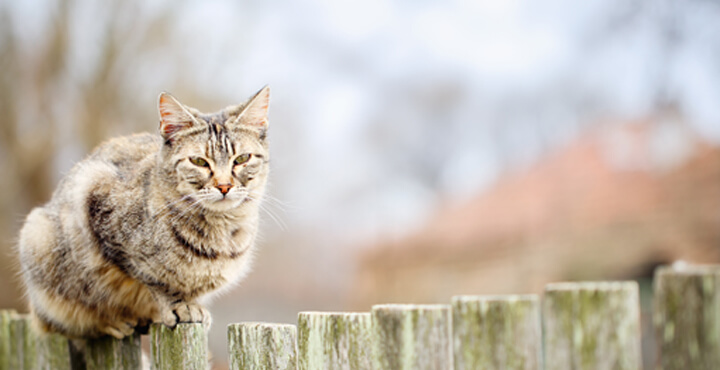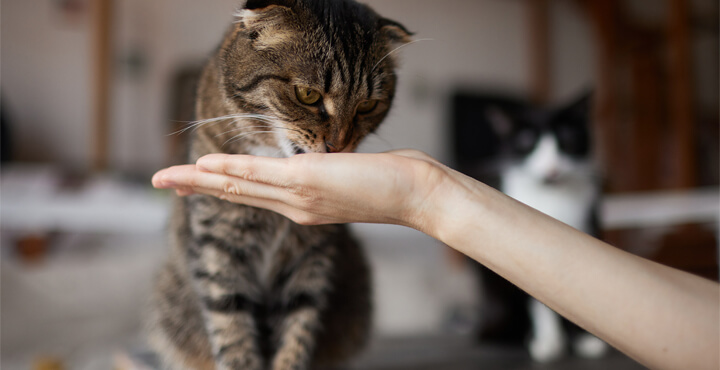
As a cat owner, one of the ways you should care for your cat is by checking their oral health is in order. As cats get older, it’s common for dental issues to develop.
So, how can you make sure your senior cat’s teeth stay as healthy as possible? WHISKAS investigates…
Signs of cat dental problems
If your cat has dental problems, there may be some tell-tale signs, including:
• Weight loss
• Eating on one side of the mouth/avoiding eating altogether
• Unkempt fur/less grooming
• Bad breath
• Visible tooth tartar
• Drooling
• Inflamed gums
• Pawing at the mouth
• Reluctant to let you touch their head
However, cats are naturally stoic animals and it may not be obvious when they are suffering from dental problems, so it’s important to check their teeth regularly.
Cat dental disease
Like all meat eaters, cats have two sets of teeth. The first set, or baby teeth, will fall out over the first few months of a cat’s life to be replaced with their adult teeth. A cat’s adult teeth need to last for the rest of their life, so it’s vital to look after them properly, otherwise they risk developing troublesome dental problems.
The first sign of dental trouble is plaque. Plaque develops naturally on the surface of the teeth when they are coated with food particles and bacteria. If the plaque is not removed either by tooth brushing, cat dental chews or dental treats, it can lead to further complications within the mouth.
How to care for your cat’s teeth
It’s important to note that cats can develop dental problems from a young age, so be sure to check their teeth regularly for any possible signs of damage.
The sooner you identify an issue, the sooner you can get it treated. However, the trouble here is that many cats dislike their mouths being touched, let alone cleaned. Here are our top tips for good cat dental care.
Firstly, you should brush your cat’s teeth regularly. This may seem an impossible task, but when introduced from an early age, it can become part of daily routine.
To brush your cat’s teeth, you will need special cat toothpaste and toothbrush to do this – as well as patience. Gently brush the teeth using a circular motion, focusing on the gum line. Offer plenty of verbal encouragement during the procedure and a treat afterwards for good behaviour.
Additionally, your cat’s diet contributes to their dental health. In order to maintain healthy teeth and gums, cats require complete and balanced nutrition that delivers all of the essential nutrients that they require from their diet. WHISKAS DentaBites are tasty cat treats that have been scientifically proven to reduce the build-up of tartar when fed daily.
Dental care in cats is easy to overlook. It is essential to check your cat’s mouth regularly and if you are concerned about your cat’s dental health, always take them to the vet.








